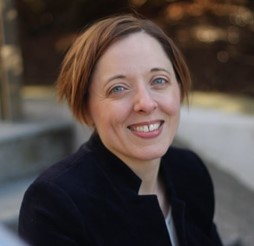Jun 1
Making Space for Your Needs as a Caregiver

Recently, Springwell’s Caregiver Specialist and Dr. Katherine King, PsyD., a psychologist who helps older adults and their families, hosted family caregivers for a virtual workshop. The topic was universal human needs and how caregivers can meet their own needs even when there is very little extra time. King described caregiving as the ultimate marathon. Just as runners must pay attention to what optimizes their own wellness while training and running a marathon, caregivers are advised to prepare and keep themselves in good condition while caring for a loved one.
King began the session with what she calls a soft-landing practice. It is a guided check in with your own body that asks you to note how you are feeling, where you feel tension in your body and suggests taking some deep breaths and either stretching or relaxing any areas where you feel tension or tightness. For some it was in their shoulders while others noted tight facial muscles. The caregivers all felt a bit better after these brief moments of tension release. “Caregivers often end up in a stress response all the time because they are putting out fires, have no idea what’s next and don’t know how long the caregiving role will last. Even a few moments of relaxation exercises can help to reduce stress,” shared King.
King asked each caregiver to do a self-assessment of how well their needs are being met in the following broad categories of human needs: well-being, connection, and self-expression. Well-being includes a need for health (e.g., shelter, nutrition, exercise), safety (e.g., not in danger, sense of order or stability). rest and recreation (e.g., play, humor, ease). Connection has three main components: love and caring (e.g., giving & receiving affection, kindness), empathy and understanding (e.g., feeling seen and heard), community and belonging (e.g., fellowship, feeling included). The third category of self-expression encompasses authenticity (e.g., autonomy, freedom, empowerment), creativity (e.g., discovery, spontaneity, inspiration), and meaning (e.g., making a contribution, learning, growth).
After the self-assessment, King suggested each caregiver reflect on what areas are difficult currently due to the caregiving role. When did you last feel this need being met? How has this need been met in the past? Can you connect back to that? The group discussed that caregiving is not the life they had before and shared ways to be creative and flexible in getting their own needs met in their new environment. They talked about ways to enjoy and recharge at moments when things are stable and when things are less stable.
One caregiver shared that she sets small goals for herself. “In the evening, I set three tasks for myself including making a sandwich for the next day to be sure I eat. When they are done, I relax and don’t worry about other things.” Another caregiver noted that she recaptured her feeling of creativity by taking her elderly mother to a museum. Each of them could have their own reaction to the art- there is no right or wrong. A third caregiver whose husband has dementia can’t be left alone for long periods of time, so she has shifted her mindset from feeling caregiving is a burden to feeling it is her purpose which gives her fulfillment.
Caregiving is a marathon and caregivers must take care of themselves to go the distance. If you were unable to attend the online seminar and would like to do access more information on the resources and topics discussed, contact Springwell’s Caregiver Specialist by reaching out to inforef@springwell.com. If you are looking for additional help on this journey, please find more information at https://springwell.com/service/caregiver-support/.


